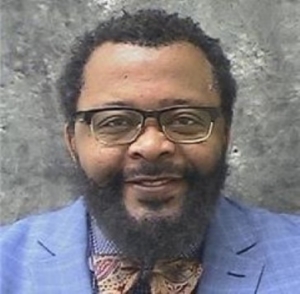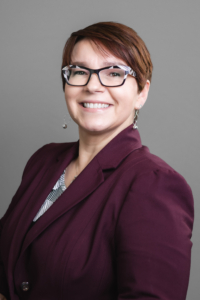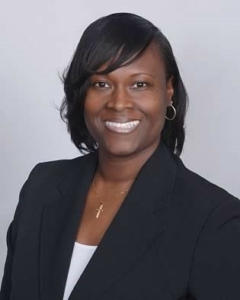TRAUMA TOOLS and RESPONSES
Register here – httpsss://www.eventbrite.com/e/v-step-southern-regional-victim-services-2-day-training-october-tickets-38585345808
(Calvert, Charles, Montgomery, Prince George’s and St. Mary’s Counties)
Monday, October 23 – Tuesday, October 24, 2017
AGENDA
DAY I (8:30 am – 4:30 pm)
8:30 Registration – sign-in and pick up nametag
8:45 Opening Welcome
9:00-12:15 Workshop Session I (with 15 minute break)
A DIALOGUE WITH A VICTIM: A CASE STUDY
Heather L. Pfeifer, Ph.D.
Learning Objectives:
Upon completion of this training, participants will be able to:
- Discuss how trauma may affect an individual’s emotional, psychological, and physical self both in the short and long-term
- Discuss how a history of trauma may affect an individual’s ability and/or willingness to interact and communicate with others
- Discuss the impact of secondary victimization on families, and how their response may either exacerbate the effects of trauma or help to moderate it
- Discuss the ambivalence some victims may feel about their perpetrator, as well as how they navigate those emotions
- Identify shared narratives between victims of child sexual abuse and other victims of crime
- Identify trauma-informed approaches when communicating and interacting with victims of crime
Workshop Summary: This workshop draws upon case study of two brothers who were sexually abused by the same perpetrator to explore the short and long-term effects of trauma. Utilizing a portfolio of artwork and written companion materials the brothers created, participants will engage in group discussion and small group activities that will help to broaden their understanding of the experience and behavior of victims, the impact such experiences has on families, and the sometimes-complex relationship victims may have with their perpetrator.
12:15–1:15 LUNCH (ON YOUR OWN)
1:15-4:30 Workshop Session II (with 15 minute break)
DEVELOPING A LENS AND A LANGUAGE TO RESPOND TO TRAUMA. S.E.L.F.: A NONLINEAR FRAMEWORK FOR RESPONDING TO TRAUMA
Ibet Hernandez, MSW
Learning Objectives:
Upon completion of this training, participants will be able to:
- Identify the four domains of SELF
- Apply SELF as a Lens to recognizing triggers and identifying losses
- Utilize each of the four domains of SELF to create a plan for engagement, process and intervention
- Discuss how SELF can be used as a problem-solving tool to engage individuals and facilitate conversations that address the complexities of their problems
- Apply SELF to own life recognizing then changing existing narratives by creating a different response to presenting problems
Workshop Summary: The workshop will provide a foundation towards becoming more trauma responsive in our work with individuals and families. It will also provide a foundation for workers to be more aware and responsive to traumatic experiences in the workplace. By developing a common language for engagement, creating a lens to recognize triggers and become more inquisitive about the behaviors we see, we will be able to create environments that are safe, emotionally intelligent, trauma sensitive and more responsive.
4:30 Debrief – Return evaluations and nametags, and sign-out
Pre-register for Certification Session scheduled for tomorrow!
DAY 2 (8:30 am – 3:00 pm)
8:30 – 8:45 Sign-in and pick up nametag
8:45 – 9:00
MD VICTIM ASSISTANCE CERTIFICATION PROGRAM (MVSCP)
Debbie Bradley, C.A., VASIII
What does it mean to be a Certified Victim Assistance Professional in Maryland? This brief introduction will provide the basic steps to becoming a certified victim assistant professional. Learn how service providers in other states are using certification to their benefit. Becoming certified is easy! Pre-register for afternoon session Now!!
9:00 – 12:15 Workshop Session III (with 15 minute break)
BUILDING TRAUMA-RESPONSIVE ORGANIZATIONS & COLLABORATIVE PARTNERSHIPS
Lizette Ubides, LCSW-C
Learning Objectives:
Upon completion of this training participants will be able to:
- Discuss the six principles to a trauma-responsive approach to delivery of services
- Identify an organization’s structure and determine how best to integrate a trauma-responsive approach to delivery of services using ten domains.
- Utilize SMART techniques in an organization’s policies, procedures and add SPARK to workspace design
Workshop Summary: This training will provide organizations and collaborative partnerships with principles, assessments tools, and organizational structures that govern a trauma-responsive approach to delivery of services. At the end of this training participants will be able to organization and form collaborative partnerships through SMART techniques (framework) that will add SPARK (strategies) to policies, procedures, workspace design and collaborative relationships.
12:15 Sign-out and Pick up Certificate of Training and CEU Forms
12:15 – 1:15 LUNCH (ON YOUR OWN)
1:15- 3:00 Workshop Session IV
MARYLAND VICTIM ASSISTANCE CERTIFICATION PROGRAM (MVSCP): CERTIFICATION
Debbie Bradley, C.A., VASIII
OPEN CLASSROOMS:
Classroom I: Certification application assistance, test preparation, information gathering and space for studying.
Classroom 2: Testing.
* Due to the highly sensitive nature and scope of Trauma Tools and Responses Regional Training topic areas, participants are encouraged to take the necessary steps to practice self-care. If at any point during the training, an individual feels a need to speak with someone privately, a professional counselor will be on site.




















